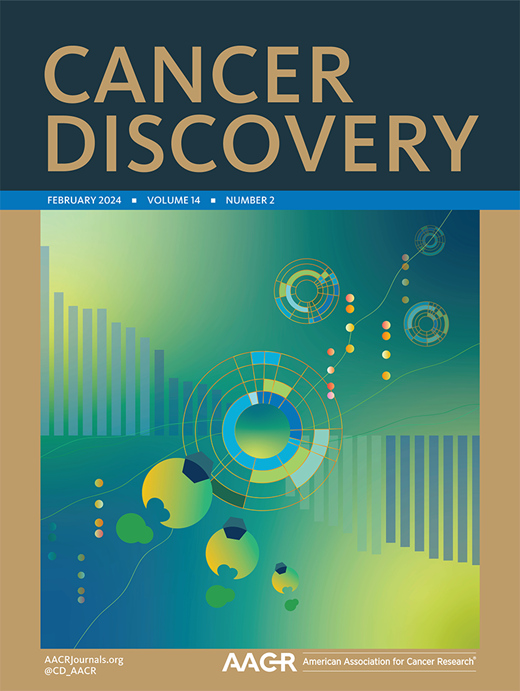Direct Inhibition of RAS Reveals the Features of Oncogenic Signaling Driven by RAS G12 and Q61 Mutations
IF 33.3
1区 医学
Q1 ONCOLOGY
引用次数: 0
Abstract
RAS genes are frequently mutated in cancer, often at codons 12 and 61. With the recent introduction of RAS inhibitors, we can now directly investigate the effects of specific RAS mutations in cancer cells. In this study, we demonstrate that in tumors with RASG12X mutations, mutant RAS can be activated by receptor tyrosine kinases (RTK), and PI3K activation is dependent on mutant RAS. Conversely, RASQ61X mutations activate the MAPK cascade independently of RTKs, and inhibition of RASQ61X impairs MAPK pathway activation but leaves the PI3K pathway unaffected. Our characterization of these distinct features of G12X and Q61X mutations suggests that co-inhibition of RAS and RTKs selectively inhibits the growth of RASG12X-mutant tumors, both in vitro and in vivo, regardless of the RAS isoform and tumor type. Additionally, our findings offer a mechanistic explanation for the increased frequency of RASQ61X mutations as a secondary resistance mechanism against EGFR inhibition in colorectal cancer. Significance: RAS inhibition in multiple tumor types reveals the difference between G12 mutants and Q61 mutants in their cooperation with upstream regulators and downstream effectors to promote oncogenic signaling. Our findings provide the rationale for combinatorial approaches and contribute to explaining the nonuniform distribution of RAS mutations, de novo and at resistance.直接抑制RAS揭示RAS G12和Q61突变驱动的致癌信号传导特征
RAS基因在癌症中经常发生突变,通常发生在密码子12和61上。随着最近RAS抑制剂的引入,我们现在可以直接研究特定RAS突变对癌细胞的影响。在本研究中,我们证明了在RASG12X突变的肿瘤中,突变体RAS可以被受体酪氨酸激酶(RTK)激活,PI3K的激活依赖于突变体RAS。相反,RASQ61X突变独立于rtk激活MAPK级联,抑制RASQ61X会损害MAPK通路的激活,但不会影响PI3K通路。我们对G12X和Q61X突变的这些不同特征的表征表明,RAS和RTKs的共同抑制选择性地抑制了rasg12x突变肿瘤的生长,无论在体外和体内,与RAS亚型和肿瘤类型无关。此外,我们的研究结果为RASQ61X突变频率增加作为结直肠癌抗EGFR抑制的继发性耐药机制提供了机制解释。意义:RAS在多种肿瘤中的抑制作用揭示了G12突变体与Q61突变体在协同上游调控物和下游效应物促进致癌信号传导方面的差异。我们的研究结果为组合方法提供了基本原理,并有助于解释RAS突变、新生和耐药的不均匀分布。
本文章由计算机程序翻译,如有差异,请以英文原文为准。
求助全文
约1分钟内获得全文
求助全文
来源期刊

Cancer discovery
ONCOLOGY-
CiteScore
22.90
自引率
1.40%
发文量
838
审稿时长
6-12 weeks
期刊介绍:
Cancer Discovery publishes high-impact, peer-reviewed articles detailing significant advances in both research and clinical trials. Serving as a premier cancer information resource, the journal also features Review Articles, Perspectives, Commentaries, News stories, and Research Watch summaries to keep readers abreast of the latest findings in the field. Covering a wide range of topics, from laboratory research to clinical trials and epidemiologic studies, Cancer Discovery spans the entire spectrum of cancer research and medicine.
 求助内容:
求助内容: 应助结果提醒方式:
应助结果提醒方式:


